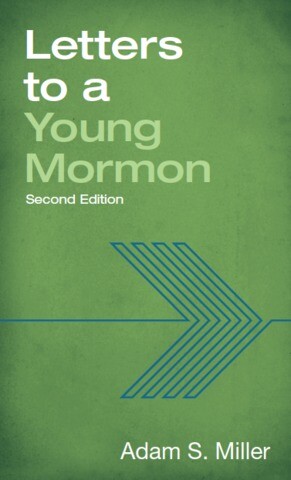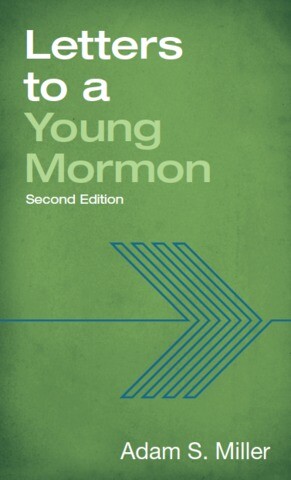As “The Family: A Proclamation to the World” warns, if we fail to defend the family, “the disintegration of the family will bring upon individuals, communities, and nations the calamities foretold by ancient and modern prophets.”
In addition to arguing that differences between men and women are real and spiritually significant, the Proclamation also boldly claims that men and women are intended, by divine design, to be “equal partners.”
As a result, it seems increasingly obvious to me that, in our day, defending the family means rooting out our world’s misogyny.
Defending the family means defending women from both the subtle and violent forms of degradation, abuse, and marginalization that riddle our world. It means taking seriously—perhaps for the first time in the history of the world—the solemn declaration that God intends men and women to be equal partners.
In my view, this will be the defining moral issue of our generation.
We cannot continue to abide the world’s casual and routine will to exploit, harass, and silence women. We must recover the full force of God’s promise that, in Christ, “there is neither Jew nor Gentile, slave nor free, male nor female” because, in Christ, everyone is “an heir according to the promise” (Galatians 3:28-29). And, as a result, everyone, like Christ, must learn to think, speak, and act for themselves so that they can inherit all that God has.
Every Woman Is a God in Embryo
Part of the Restoration’s great unfinished work is to flood the earth with this latter-day revelation: that every woman is a god in embryo.
This is not easy work. We may be promised to Zion, but we live in Babylon. This world’s powers and treasures have long been commandeered by men, for men.
And in ways that are as ordinary as they are systemic, the world has obscured this truth and pushed women to the margins. Beyond our individual failures, these worldly ways of thinking are often baked into the languages we speak and the institutions we share. They inflect our laws, our politics, our sciences, our schools, our jobs, and our media.
This misogyny is sufficiently commonplace that it surely counts as one of the world’s most deeply engrained idolatries: men, rather than worshipping God, have made an idol of themselves. In an attempt to fashion the world in their own manly image, men have disfigured it.
A Forced Choice
In defense of this idolatry, the world attempts to force a choice: either women don’t get to be people or they don’t get to be women.
On the one hand, the world wills women to be women—but not people—by stripping them of agency and reducing them to passive objects of desire, angels on pedestals, prizes to be won, or images to be consumed. In this case, whether women are silenced and marginalized in the name of false religions or a global pornography industry, the result is the same.
On the other hand, the world wills women to be people—but not women—by urging women to worship, with men, the destructive fantasy of a celebrated, sovereign manhood, unbeholden to God, family, or the common good, as the truth of what it means to be human. Here, whether women are stripped of their womanhood in the name of false religions, global capitalism, or the frequently secular assumption that “masculinity” ought to be the measure of equality, the result is the same.
In the first case, the worth of a woman is measured by her value in the eyes of a man. In the second case, women are pressed to take the myth of man as the measure of a valuable life.
Neither position accords with what God has revealed: that women, as God’s heirs, as gods in embryo, are both equal to men and not men. The delicate and difficult work of sheltering both these truths is pivotal to Christ’s ongoing effort to rescue this world from its religious and secular idolization of man.
It's Time to Say No More
In many respects, this work has barely begun.
God’s patience with our world’s misogyny is—I ardently pray—wearing thin. Business as usual cannot continue. God will not suffer it to be so. “I will not suffer, saith the Lord of Hosts, that the cries of the fair daughters of this people . . . shall come up unto me against the men of my people” (Jacob 2:32).
The sun on that old world is setting. Christ is already at the door, pounding with his fist, declaring that “they shall not lead away captive the daughters of my people . . . save I shall visit them with a sore curse, even unto destruction” (Jacob 2:33).
There is nowhere to hide. The traditions of this world can provide no cover from the shining light of God’s wrath. He sees us as we are.
It’s time for us to take a hard look at our choices and habits and idols. It’s time for us to stand collectively—men and women, Mormon and otherwise—and say: no more.
It’s time to push the wheel of the Restoration another turn forward and prepare for a millennial world where, under Christ’s reign, our prejudices, idolatries, and inequalities will be burned away by love and justice like dew before the morning sun.
It’s time stop being shy about the fact that seriously defending the family means, without a doubt, rooting out our world’s misogyny.
Lead image from Getty Images
Get more powerful gospel insights from Adam S. Miller in Letters to a Young Mormon.
This book is composed as a series of letters. The letters are meant for a young Mormon who is familiar with Mormon life but green in his or her faith. The author, philosophy professor Adam S. Miller, imagined himself writing these letters to his own children. In doing so, he struggled to say his own piece about what it means to be—as a Mormon—free, ambitious, repentant, faithful, informed, prayerful, selfless, hungry, chaste, and sealed.
The letters do little to benchmark a Mormon orthodoxy. That work belongs to those called to it. Here, Miller's work is personal. He means only to address the real beauty and real costs of trying to live a Mormon life and hopes to show something of what it means to live in a way that refuses to abandon either life or Mormonism.






